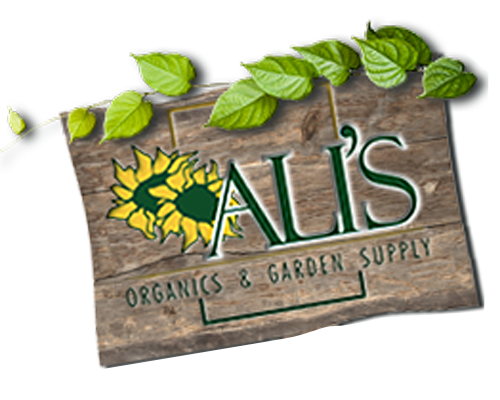Do's and Don'ts in the Organic Garden
Posted October 25, 2016

Sometimes we need a little reminder of what we should do and shouldn't do in the garden. Here are a few tips~
Do: Rotate Crops
Each type of plant has different nutritional needs, and growing one crop in the same spot year after year can deplete the soil of essential nutrients, as well as cause a build up of pathogenic organisms. Varying the type of plants in each bed from year to year will benefit both the flora and fauna of your garden.
Do: Top Dress
When adding compost to your garden bed during the growing season, lay it on top of the soil, rather than digging it in. Weather and insect activity will gradually mix it into the soil.
Do: Mulch
Not only does mulching suppress weeds, which minimizes soil disturbances, it also prevents water loss through evaporation and reduces temperature fluctuations - creating an ideal environment for beneficial critters.
Soil organisms are most active when the soil is warm and moist. Remember that it takes time for some organic fertilizers to become available to plants, and they break down at different rates. Research your soil amendments to discover the best time of year to fertilize.
Do: Use Our Organic Fertilizers
Feed your soil critters the best diet and they will reward your plants with the best nutrients. Our fertilizer blends contain ingredients from a wide variety of sources, which are broken down by soil microbes at differing rates. Once application will meet your plants' nutritional needs over a longer period of time than chemical fertilizers, or other organic fertilizers with less diverse ingredients.
Don't: Step on Garden Beds
Beneficial insects, fungi, as well as plant roots, water and oxygen can not move easily through compacted soils. Keep this in mind when designing your garden beds, create reachable beds, and easily navigable paths that are wide enough to work in.
Don't: Don't Over-Work the Soil
Too much tilling can destroy the delicate soil structure, kill earthworms and collapse their tunnels, and damage mycorrhizal fungi. After the initial preparing of the garden bed, till only when necessary. Some amendments will need to be mixed in to come into contact with soil microbes.
Don't: Over-Water
A plant's roots, and the beneficial fungi that grow on them, need oxygen to grow. Heavy, waterlogged soils inhibit oxygen absorption and create an unhealthy environment. Water deeply and less frequently, test the soil for dryness before watering again.
Don't: Use Chemical Pesticides, Fungicides and Insecticides.
These can kill the beneficial insects, microbes and fungi on which a healthy plant depends on. Instead, focus on prevention of pests and diseases.



Comments (0 Comments)
There are no comments.
Post Comment